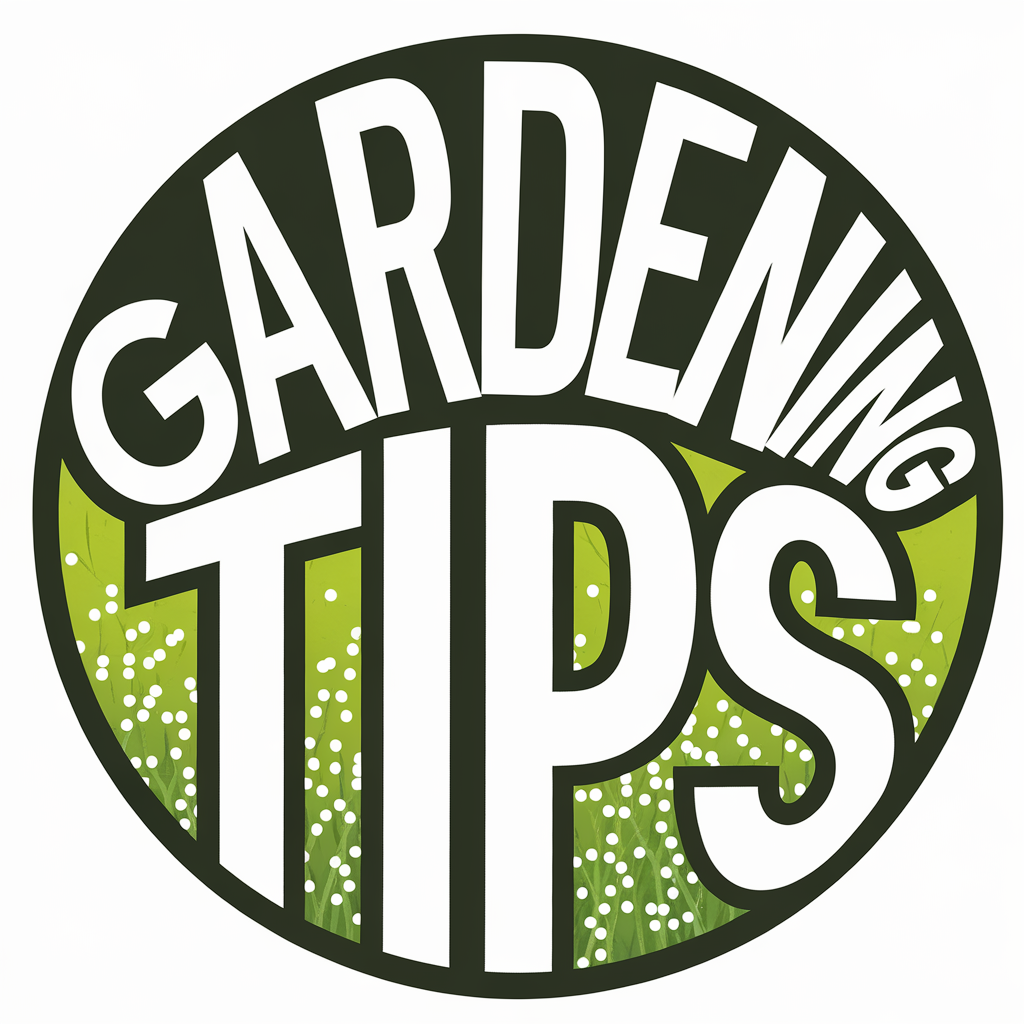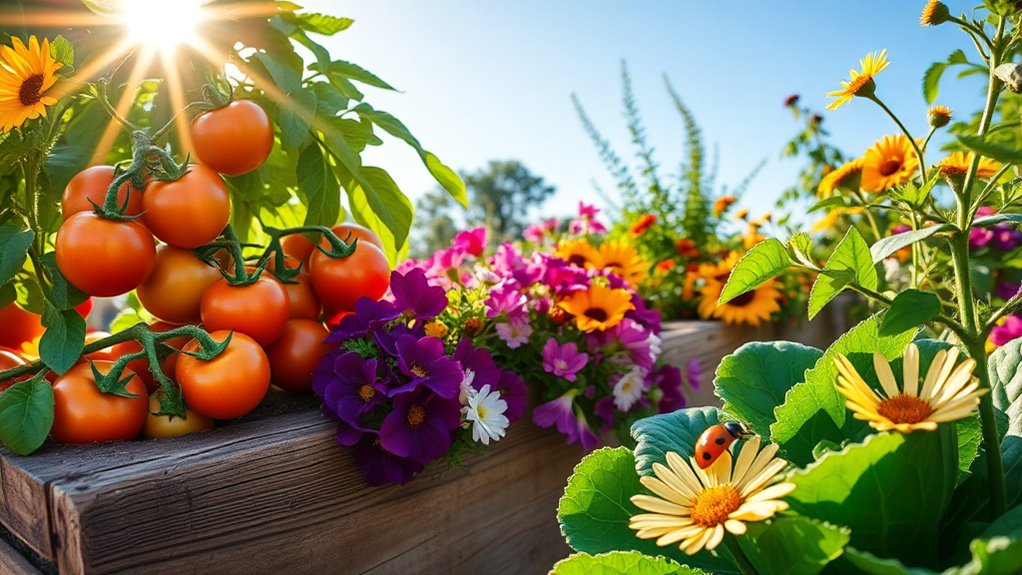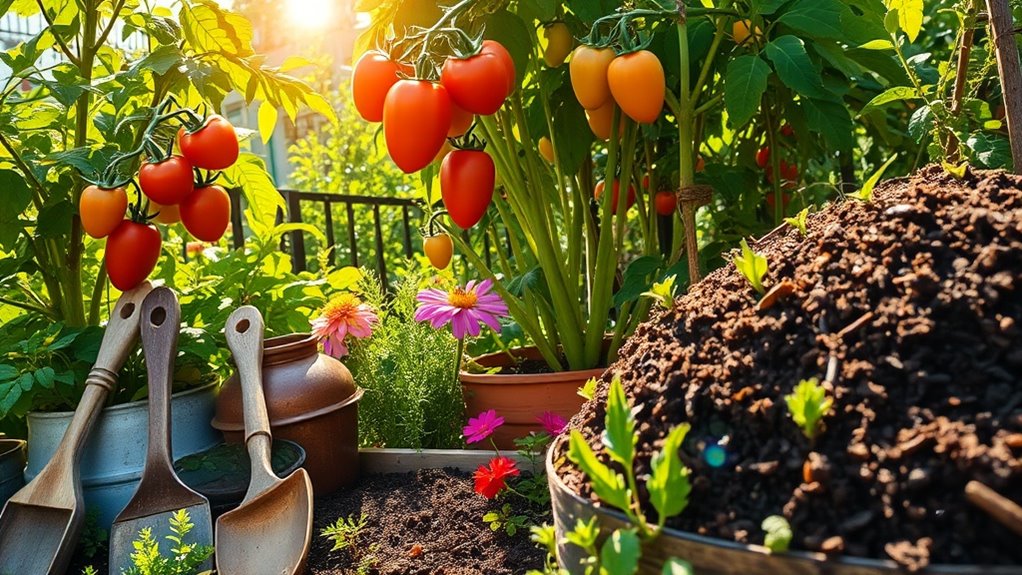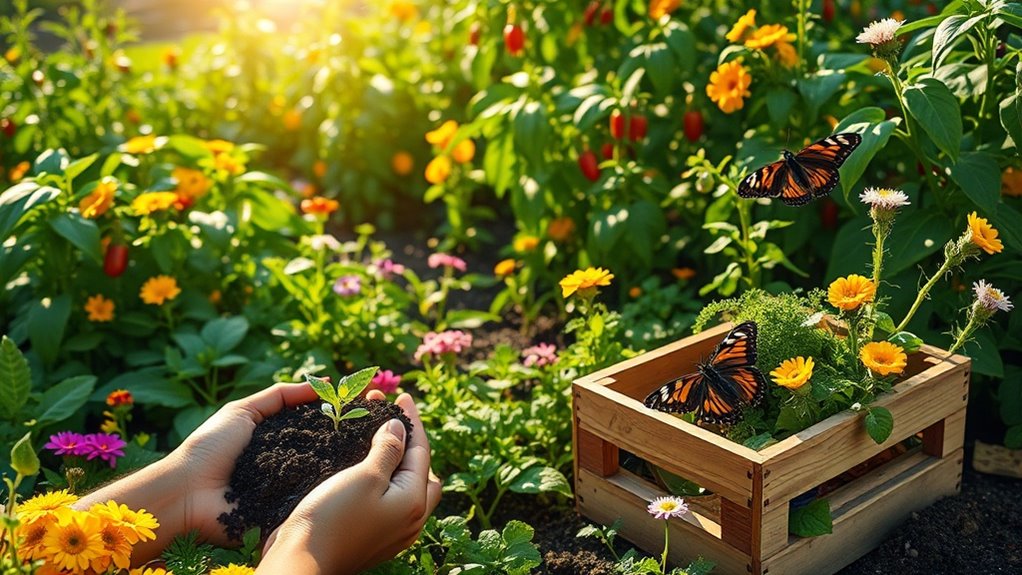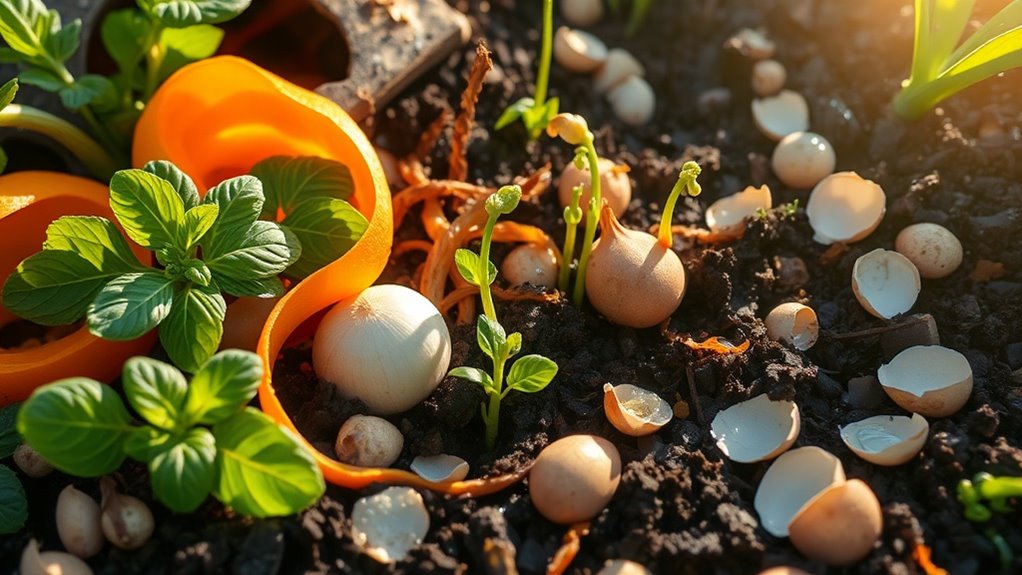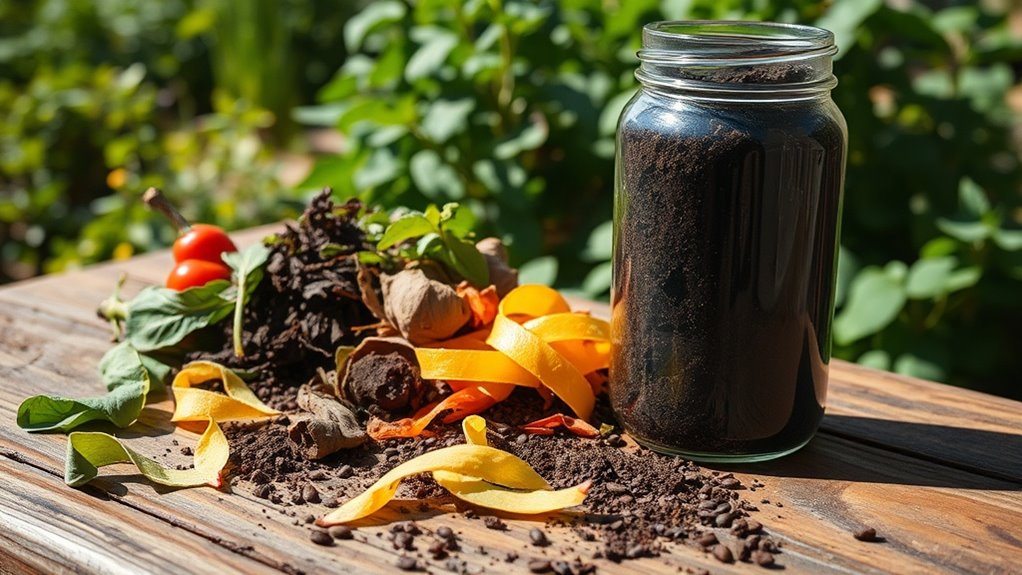I Gave Up Chemicals and My Garden Has Never Looked Better
When you step into a garden free of chemicals, you might notice a shift in the atmosphere—a vibrant, thriving ecosystem at work. It’s fascinating how abandoning synthetic inputs can revitalize your plants and soil. The contrast between traditional methods and organic practices raises questions about plant health and biodiversity. What are the tangible benefits you can expect from making this change? Let’s explore the ways giving up chemicals transforms not just your garden, but your entire gardening experience.
The Perils of Chemical Gardening
While many gardeners may find it tempting to rely on chemical solutions for their plants, doing so often leads to a cycle of dependency and environmental harm.
You might notice initial benefits, but these chemicals can degrade soil health, harm beneficial insects, and contaminate water sources.
Embracing chemical-free gardening not only fosters a healthier ecosystem but also encourages resilience in your plants, ultimately creating a more sustainable garden. Additionally, exploring natural remedies for pest control can provide effective solutions without the drawbacks of chemicals.
Embracing Organic Practices
Choosing to cultivate your garden without chemicals opens the door to organic practices that nurture the soil and promote plant health.
You’ll find that using compost, crop rotation, and natural pest deterrents not only fosters biodiversity but also enhances resilience in your plants. Additionally, this shift towards natural practices creates a healthier ecosystem that benefits both your garden and the environment.
Building Healthy Soil
To cultivate vibrant, thriving plants, you must first focus on building healthy soil, as it serves as the foundation for your garden’s success.
Start by enriching your soil with organic matter, like compost or well-rotted manure, enhancing its structure and nutrient content. Test pH levels, and adjust accordingly. This will foster biodiversity, improve drainage, and ensure your plants access vital nutrients. Additionally, addressing common composting issues can greatly enhance the quality of your compost and, in turn, your soil health.
Attracting Beneficial Wildlife
After establishing a robust foundation with healthy soil, the next pivotal aspect of organic gardening involves attracting beneficial wildlife.
By incorporating native plants, you provide food and shelter for pollinators and natural pest predators.
Installing birdhouses and water sources invites birds, while creating habitats for insects enhances biodiversity.
This synergy not only fosters a vibrant ecosystem but also promotes your garden’s resilience and productivity. Additionally, companion planting strategies can further attract beneficial insects, helping to maximize your garden’s health and yield.
The Transformative Impact on My Garden
As you embrace organic gardening practices, you’ll likely notice a remarkable transformation in your garden’s health and vitality.
Plants flourish with vibrant colors and robust growth, thriving in enriched, chemical-free soil. Beneficial insects become a natural part of your ecosystem, aiding pest control. Utilizing organic gardening tips can enhance this transformation even further by promoting healthy plant growth and resilience.
You’ll cultivate a balanced environment, resulting in healthier yields and reduced stress, making your gardening experience both rewarding and sustainable.
